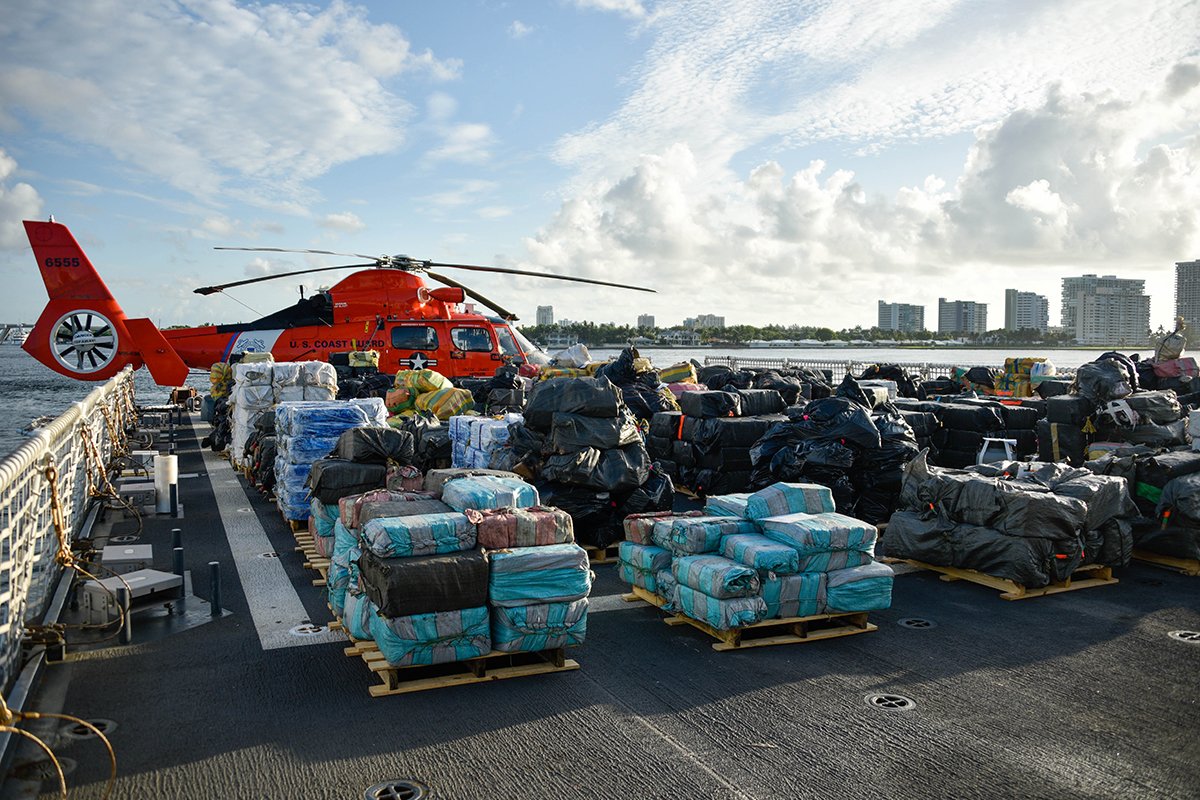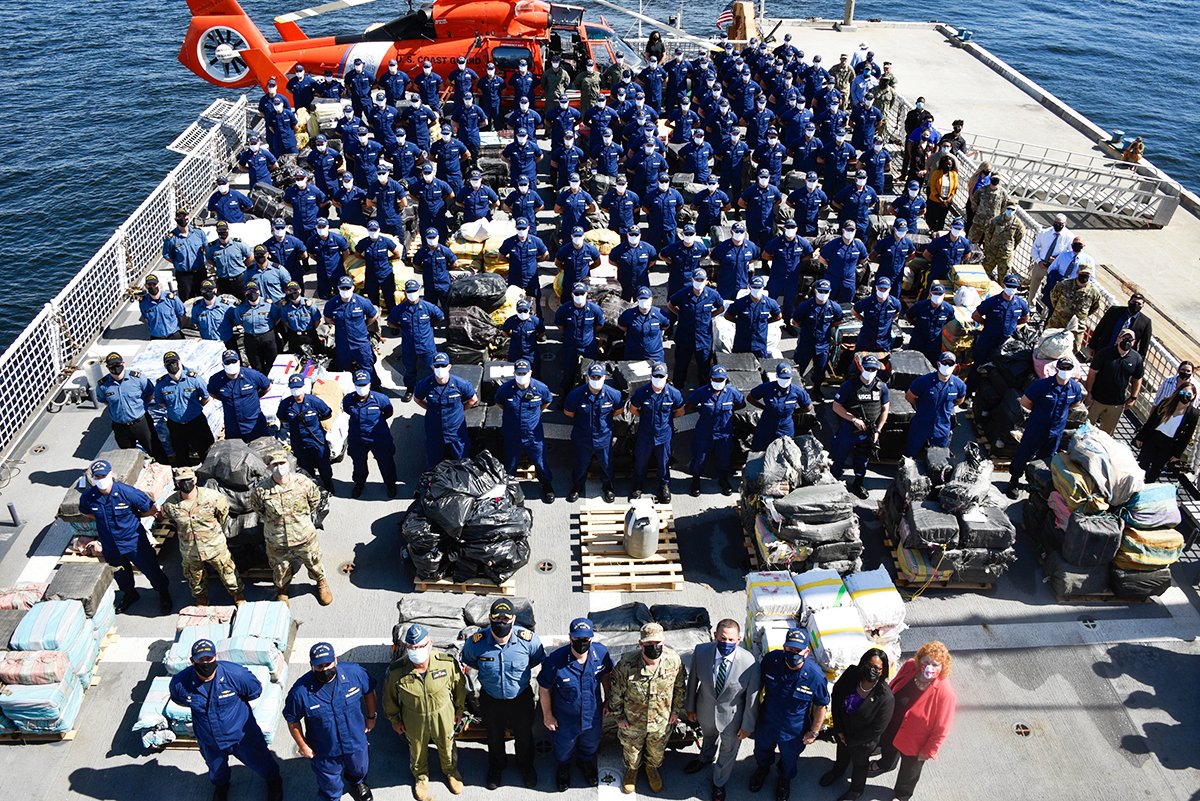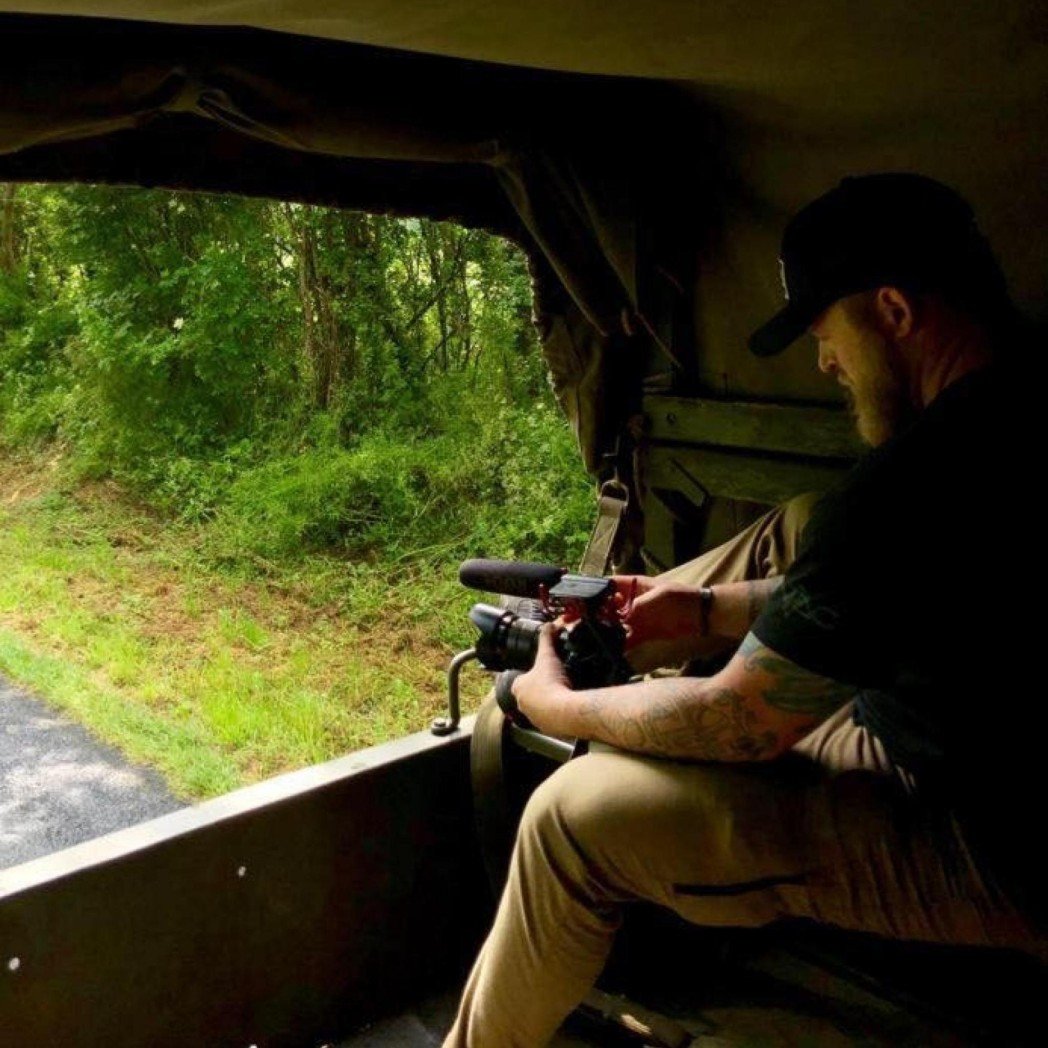Coast Guard Offloads Record $1.4 Billion Worth of Cocaine, Marijuana

Ten ships from the US, Canada, and the Netherlands seized a record amount of cocaine from drug smugglers. Photo courtesy of the US Coast Guard.
The United States Coast Guard offloaded nearly 60,000 pounds of cocaine and more than 1,400 pounds of marijuana with an estimated street value of $1.4 billion Thursday at Port Everglades, Florida, in the largest haul in the branch’s history.
Leaders from both the American and Canadian militaries announced the results during a Thursday press conference. Capt. Todd Vance of the USCG cutter James said his ship and crew of 150 sailors worked with Canada, the Netherlands, and other US federal law enforcement and military assets to complete the record-breaking seizure.
“Operating under challenging maritime conditions, amid a global pandemic, these outstanding Coast Guard women and men who operate our boats, fly our armed helicopter, skillfully interdicted drug smugglers operating vessels used to move the tons of narcotics you see before you today,” Vance said.
The drugs were seized in the international waters of the Caribbean Sea and of the Eastern Pacific Ocean off the coasts of Mexico, Central America, and South America, according to a USCG press release. Ten American, Dutch, and Canadian ships completed a total of 27 interdictions over the course of the three-month patrol.

“This crew and their efforts have struck a significant blow in the fight to combat the criminal networks that create the destabilizing influence we are all witnessing in Central America and at our nation’s southern border,” Vance said.
Suspected drug smugglers are usually detected by military or law enforcement agencies coordinated by the Joint Interagency Task Force-South based in Key West, Florida, according to the Coast Guard. USCG personnel board vessels through a range of tactics and seize both the suspected smugglers and their payloads.
Cooperation between Canadian and US military and law enforcement entities isn’t new. Maj. Gen. Paul Ormsby, the Canadian defense attaché to the United States, said the fight against illicit drugs and the criminal entities supplying them required an all-hands-on-deck approach.
“Canada and America are committed to expanding cooperation on defending North America against illicit trafficking and transnational crime and working together within our alliances,” Ormsby said. “We know that no nation can do it alone, and we know that we are stronger together.”
Read Next:

Joshua Skovlund is a former staff writer for Coffee or Die. He covered the 75th anniversary of D-Day in France, multinational military exercises in Germany, and civil unrest during the 2020 riots in Minneapolis. Born and raised in small-town South Dakota, he grew up playing football and soccer before serving as a forward observer in the US Army. After leaving the service, he worked as a personal trainer while earning his paramedic license. After five years as in paramedicine, he transitioned to a career in multimedia journalism. Joshua is married with two children.
BRCC and Bad Moon Print Press team up for an exclusive, limited-edition T-shirt design!
BRCC partners with Team Room Design for an exclusive T-shirt release!
Thirty Seconds Out has partnered with BRCC for an exclusive shirt design invoking the God of Winter.
Lucas O'Hara of Grizzly Forge has teamed up with BRCC for a badass, exclusive Shirt Club T-shirt design featuring his most popular knife and tiomahawk.
Coffee or Die sits down with one of the graphic designers behind Black Rifle Coffee's signature look and vibe.
Biden will award the Medal of Honor to a Vietnam War Army helicopter pilot who risked his life to save a reconnaissance team from almost certain death.
Ever wonder how much Jack Mandaville would f*ck sh*t up if he went back in time? The American Revolution didn't even see him coming.
A nearly 200-year-old West Point time capsule that at first appeared to yield little more than dust contains hidden treasure, the US Military Academy said.












